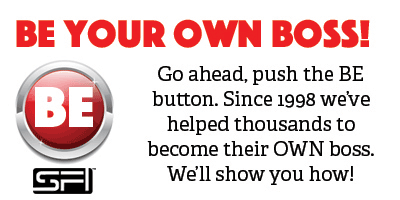
Clearly Identify What You Want to Achieve: If you want to develop an effective online reputation management strategy, you must first identify what you want to achieve. You must set clear goals right from the outset making sure these goals are achievable. Your objectives must also be clear. Clearly identify what you want your brand image to be like and what kind of reputation you want for your business. You can set these goals by directly focusing on your target audience in terms of their demographics, psychographics, and geography. Your goals must match the overall goals of your business and not just your marketing campaigns. That way, you can better channel human efforts and resources to managing the reputation of your brand and business.
Choose the Right Strategy: Choosing the right strategy is hugely important for your brand and business. It is imperative to determine right from the outset how you want to manage your online reputation and then choose the right tools and platforms suitable for it. It is difficult to miss the mark if you correctly choose the right tools and platforms to manage your online reputation.
Focus on the Right Platforms: The best platforms to choose and focus on are platforms where your target audience habitually hangs out online. Doing so helps you to effectively reach the audience with your marketing messages. Popular social media platforms like Facebook, Twitter, LinkedIn, Instagram and the likes are reputed to have audience preferences, from young adults to middle age persons and so on. LinkedIn is particularly reputed for middle age professionals. So, if you want to manage your online reputation on any of these platforms, you must know the kind of marketing messages to use on each of the platforms to help your online reputation.
Choose the Right Marketing Tools: You can effectively use a well optimized website, blogs and even forums to manage your online reputation. If as part of your strategy you plan to use blogs or forums to manage your online reputation, be sure that your content is well-written and optimized for SEO purposes. That way, search engines particularly Google will rank the content high in their SERPs. That translates to good organic traffic back to your website or blog since the material will benefit from better online searches.
Focus on Long-Term Results: When choosing an online reputation management strategy, it is best to think long term. No matter how good your strategy is, the effects will not be immediate. It may take weeks or even months to see positive impacts from your campaign efforts. Experience shows that when the effects start coming out, they are likely to continue for quite a while. So, do not get discouraged if the results you expect do not come immediately. It is best to think long term because the results will come anyway provided you are doing your campaigns correctly.

Stay Up-To-Date on Your Social Media Platforms: With over 4.5 billion active users on social media, that’s one huge market out there online. An effective online reputation management strategy should therefore include staying up to date on your social media accounts. Social media platforms are busy 24/7 and all year round. A lot goes on in these platforms around the clock. Therefore, you can miss out on a lot of important information if you don't sign in often enough to check what’s going on. Make it a habit to always know what's going on with your social media account(s). If you are too busy or engaged somewhere and you cannot stay updated, consider hiring someone to keep an eye on your social media accounts for you. It is usually a good decision and investment for very busy executives who choose to do so. By staying up to date, you can easily see when something needs changing or updating and you take steps to fix it immediately before it attracts negative comments that can directly impact your online reputation.
Diligently Monitor Your Brand Online: If you want to have a good idea what people are saying about your brand/business/products/services, it is important you diligently monitor the brand/business/products/services online. You can use social media monitoring tools and Google alerts to get info about any comments about your business online. If you set up Google alerts for instance, you receive timely notifications whenever someone mentions your business name on the web. You can quickly trace and know where to make amends if the comment or observation in negative for instance. If you run an online shop, its dashboard analytics tools information can give you the right insights to determine whether or not there are any issues with your webpage load speed and if there are any broken links within pages or product listings that require immediate fixing.
Keep a Keen Eye on Negative Reviews: Yes, as you get positive reviews, it is inevitable that you’ll also get negative reviews. Even if you choose not to respond to positive reviews, be sure to quickly respond to negative reviews. Acknowledge and appreciate customers who post negative reviews and assure them that their concerns will be quickly addressed. Make sure you do so promptly as you have promised. Never ignore negative reviews outright. If it becomes necessary, never fail to sincerely apologize for what people see as not right. Take pains to always explain what went wrong and with a firm promise to have it fixed immediately. Doing so helps your online reputation a great deal.
Respond Timely to Reviews: You must make it a business habit to respond to reviews promptly. Make sure your responses are well thought out, should be sufficiently welcoming, respectful, and helpful to your customer concerns. This way, your responses will greatly help mitigate the impact of negative reviews particularly from users who write malicious or defamatory content in their reviews. Never take negative reviewers as adversaries. You must find ways to accommodate all reviews and respond to them promptly and intelligently. Doing so helps your online reputation in many ways.
Set Up Google Alerts: Google Alerts are a great way to track people's opinions online about your brand or product. Presently, one of the best and most reliable ways to keep track of what people are saying about your brand/products is through Google Alerts. Once you set up the alerts in the configuration you want your info, Google thereafter never fails to alert you when it hits on the information you want. You can also effectively use Google alerts to monitor your competition and what they are doing. Google alerts can also help you to stay on top of industry trends by alerting you about new info as it is coming in. So, if you set up Google alerts on things that really matter to your business, it helps your online reputation a great deal.
Wrapping Up
Building your brand reputation online is one of the smartest things to do if you are a digital marketer. If online users perceive your brand/business in positive light, it helps the growth of your business. The foregoing techniques have been tested and tried by marketers who take online reputation seriously and they work. The positive results they give lend them to other marketers/businesses who also want to build their online reputation. They can help you too to build a very good image for your own brand/business if you try them out.




